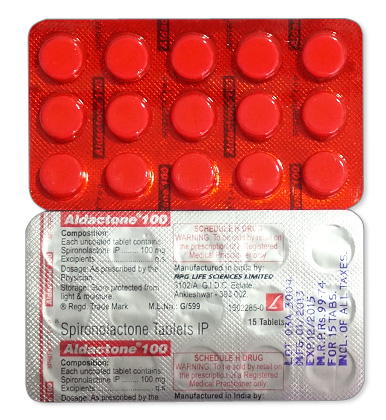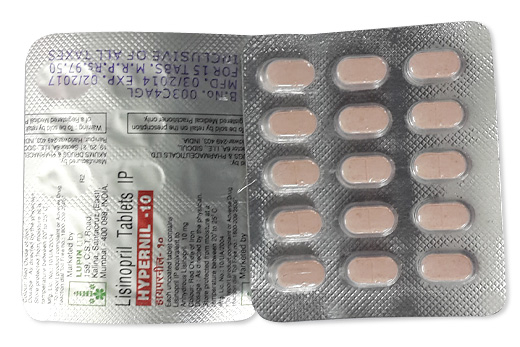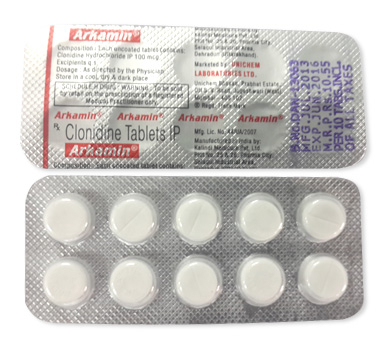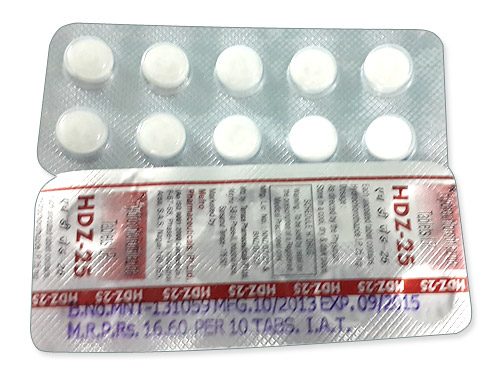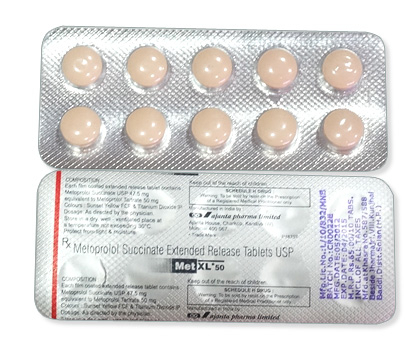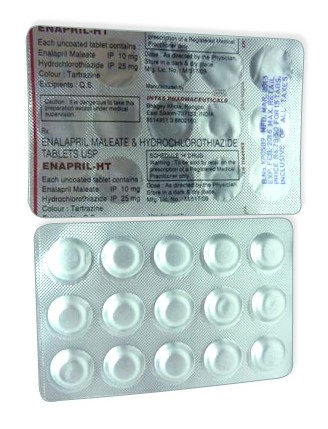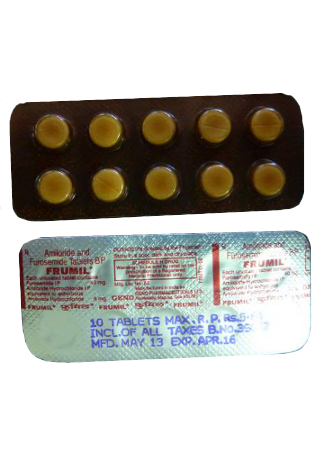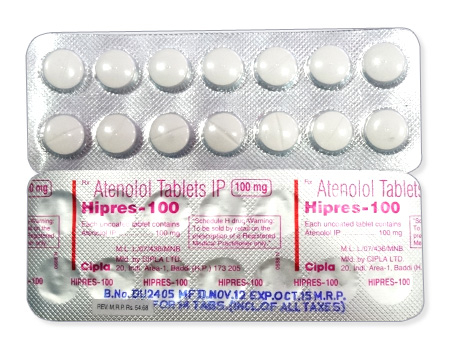Esidrix
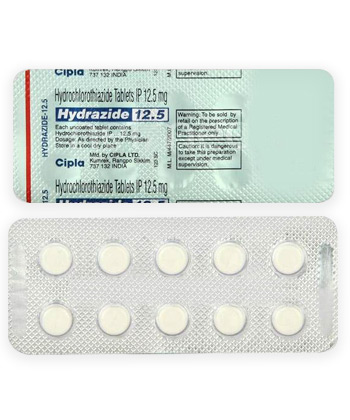
Esidrix
- Esidrix and hydrochlorothiazide generics are available internationally in pharmacies and online (e.g., USA, Germany, UK, Romania via “Hidroclorotiazidă”), packaged as tablets/bottles—prescription required in most countries. Limited low-dose OTC availability possible in select regions.
- Esidrix treats hypertension (high blood pressure) and edema (fluid retention). It works as a thiazide diuretic by inhibiting sodium reabsorption in kidneys, increasing urine output and relaxing blood vessels to lower blood pressure.
- Typical dosages are: Hypertension — starting at 25 mg once daily (range: 12.5-50 mg/day). Edema — 25-100 mg/day in single/divided doses. Children — 1-2 mg/kg/day adjusted individually (max 37.5 mg/day).
- Forms of administration: Tablets (most common: 25 mg and 50 mg), less frequently as capsules or oral solution. Take orally with water.
- Onset time: Diuretic effects begin within 2 hours of oral administration.
- Duration of action: Diuresis persists 6-12 hours; blood pressure-lowering effects extend up to 24 hours, enabling once-daily dosing.
- Alcohol warning: Avoid excessive intake—it may worsen electrolyte loss, dehydration, dizziness, and low blood pressure risks.
- Most common side effects: Dizziness, headache, increased urination, electrolyte imbalances (e.g., low potassium), muscle cramps, nausea, and weakness.
- Would you like to try Esidrix to manage hypertension or edema? Note: A medical prescription is typically required.
Basic Esidrix Information
| INN (International Nonproprietary Name) | Hydrochlorothiazide |
| Brand Names Available in United Kingdom | Esidrix, Hydrex, plus generic versions |
| ATC Code | C03AA03 |
| Forms & Dosages | Tablets: 12.5mg, 25mg, 50mg; Capsules: 12.5mg, 25mg |
| Manufacturers in United Kingdom | Sandoz, Teva, Mylan and other generic suppliers |
| Registration Status in United Kingdom | MHRA-approved (Product Licence holders vary by brand) |
| OTC / Rx Classification | Prescription-only medication |
Esidrix belongs to the thiazide diuretic class and contains hydrochlorothiazide. The branded Esidrix version typically comes in 25mg or 50mg tablets though UK patients more commonly receive the widely accessible Hydrex brand or other generics. All formulations require a prescription in Britain as they are not available over the counter. The Medicines and Healthcare products Regulatory Agency maintains approval for these medicines. Reputable pharmacies including Boots and LloydsPharmacy stock these diuretics which are produced by major pharmaceutical manufacturers under stringent quality control.
Pharmacology Of Hydrochlorothiazide
Hydrochlorothiazide lowers blood pressure through targeted kidney action. This diuretic blocks sodium reabsorption in the distal convoluted tubules which leads to increased urine production. Reduced sodium levels cause the body to release excess fluid which effectively lowers blood volume. This mechanism begins working within approximately two hours of swallowing a tablet with peak effects occurring around four hours post-dose. The medication remains active for six to fifteen hours depending on individual metabolism.
Certain substances interact significantly with hydrochlorothiazide. Nonsteroidal anti-inflammatory drugs including common painkillers can reduce effectiveness. Lithium combinations require careful monitoring due to heightened toxicity risks. Alcohol amplifies potential dizziness and dehydration effects. Electrolyte imbalance lies at the core of frequent adverse reactions meaning long-term therapy requires periodic blood tests as suggested by healthcare guidelines. Potassium depletion particularly warrants attention during extended treatment courses.
Indications And Usage
Healthcare professionals prescribed Esidrix primarily for hypertension management and edema associated with cardiac conditions or kidney disorders. The medication works to control elevated blood pressure often as a first-line treatment option. For fluid retention cases the drug facilitates reduction of swelling in ankles limbs or abdomen. An off-label application sometimes involves preventing calcium-based kidney stones in the UK though this constitutes supplementary usage outside formal approvals.
Considerations vary significantly among different patient groups:
- Pregnancy generally contraindicates use because hydrochlorothiazide crosses into fetal circulation with potential adverse effects
- Elderly metabolism requires cautious dosing typically starting at 12.5mg daily
- Children over six years may use it for hypertension using weight-based calculations
Dosage And Administration Guidelines
| Condition | Standard Dose | Maximum Daily |
|---|---|---|
| Hypertension | 25mg once daily | 50mg |
| Edema | 25-100mg | 100mg |
Morning administration strongly minimizes overnight bathroom trips optimizing treatment convenience. Patients with kidney impairment generally avoid this medication if their estimated filtration rate drops below 30ml/min and always require electrolyte monitoring. Those occasionally skipping doses should take it upon remembrance unless near their next scheduled time doubling causes dehydration risks. Store tablets in original packaging somewhere cool and dry avoiding humid environments like bathrooms. Ideal temperatures remain below 25°C with protection from direct light and moisture to maintain stability.
Safety Considerations for Esidrix (Hydrochlorothiazide)
Esidrix must never be taken if you have a known allergy to sulfonamide medications or complete absence of urine output (anuria). These represent absolute contraindications requiring immediate medical attention.
Common adverse effects include:
- Electrolyte imbalances: Low potassium occurs in 8% of users - symptoms include muscle cramps and fatigue
- Dizziness or lightheadedness affecting 16% of patients, especially when standing quickly
- Increased sun sensitivity causing easier sunburn
Severe reactions require urgent care:
- Signs of allergy (swelling, breathing difficulties)
- Severe abdominal pain indicating pancreatitis
- Unusual bleeding/bruising suggesting blood cell issues
Exercise caution with personal histories of gout, lupus, diabetes or kidney impairment. Regular monitoring of kidney function and electrolytes is recommended - roughly 40% of severe reactions involve undetected imbalances. No EMA-issued black-box warnings currently exist, but your GP may consider alternatives if complications arise.
Patient Perspectives on Esidrix Treatment
UK patient feedback collected via NHS Choices and Patient.info reveals varied experiences:
Satisfaction Patterns
Positive reports often mention adequate hypertension control: "My readings normalised within 14 days of starting" and "Effective fluid reduction in my ankles". Cost-effectiveness frequently appears for generic versions - prescriptions typically cost £2-9 monthly.
Common Challenges
Negative experiences centre on electrolyte depletion symptoms: "Leg cramps woke me nightly until potassium testing" or "Persistent dizziness forced dosage reduction".
Adherence Strategies
Practical approaches include: Taking doses before midday minimises overnight bathroom trips Electronic medication reminders help younger adults Dosette boxes effectively organise senior medicine schedules
UK Alternatives to Esidrix
When Esidrix proves unsuitable, NHS clinicians frequently prescribe:
Comparative Diuretic Options
| Drug | Key Advantages | Monthly Cost Range (NHS) |
|---|---|---|
| Indapamide | Sustained 24-hour action with lower hypokalemia risk | £5.20–£7.80 |
| Chlorthalidone | Extended 48-hour duration suits inconsistent dosing | £6.30–£7.50 |
| Bendroflumethiazide | NHS hypertension first-line recommendation | £4.50–£5.60 |
Clinical Guidance Notes
Pressure medication choices depend on individual scenarios Loop diuretics preferred for marked fluid retention Kidney function significantly impacts prescribing eligibility Always discuss alternative options with your GP
Esidrix Availability and Cost in the UK
Hydrochlorothiazide, branded as Esidrix or generics like Hydrex, is widely accessible across the UK. You'll find it at Boots, LloydsPharmacy, and independent pharmacies, though generic versions dominate the market. Expect to pay £6–£12 for a standard pack of 28 tablets, depending on whether you choose a branded or generic product. Most come in blister packs (around 98% of stock), with bottle packaging being rare. Demand often increases during winter months due to blood pressure fluctuations in colder weather.
Pharmacies typically maintain consistent stock levels, but it’s wise to call ahead if you need a specific brand. Online pharmacies also offer Esidrix and generics, but ensure they’re registered with the General Pharmaceutical Council for safety. For those managing hypertension long-term, buying multipacks can reduce costs.
Recent Research and Development Trends
A 2023 Lancet meta-analysis confirmed hydrochlorothiazide’s effectiveness, showing a 29% reduction in stroke risk for hypertension patients. With patent expiration driving generic dominance, research now focuses on optimising low-dose combinations. Studies explore pairing hydrochlorothiazide with ACE inhibitors or calcium channel blockers to tackle resistant hypertension more effectively.
Emerging data suggests these combinations improve outcomes while minimising side effects like electrolyte imbalances. For those with complex needs, such as elderly patients or those with kidney concerns, these innovations offer tailored approaches. Always discuss the latest treatment options with your GP or pharmacist during reviews.
Common Questions About Esidrix Use
Patients often ask about lifestyle interactions with hydrochlorothiazide. Moderate coffee intake is generally acceptable, but excessive caffeine might elevate blood pressure, countering the medication’s effects. For seniors, starting at lower doses (like 12.5mg) is advisable, with regular monitoring for dizziness or dehydration.
Other frequent concerns include alcohol consumption (limit to avoid intensified dizziness), pregnancy safety (not recommended without specialist oversight), and missed doses (never double up – take it if remembered, unless close to the next dose). Exercise is encouraged, but hydrate well and watch for muscle cramps indicating electrolyte loss.
Practical Guidelines for Taking Esidrix
Take hydrochlorothiazide at 8 AM with water to minimise nighttime bathroom trips. Avoid high-sodium foods like processed meats or canned soups, as salt undermines its blood pressure-lowering effects. Steer clear of NSAIDs (e.g., ibuprofen), which can reduce effectiveness and harm kidneys, and alcohol, which worsens dehydration.
Store tablets in their original container away from humid areas like bathrooms. A common mistake is doubling doses after forgetting one – this significantly increases dehydration and electrolyte imbalance risks. Always refer to the MHRA-approved patient leaflet for specific storage and safety details, and discuss persistent side effects with your pharmacist immediately.

